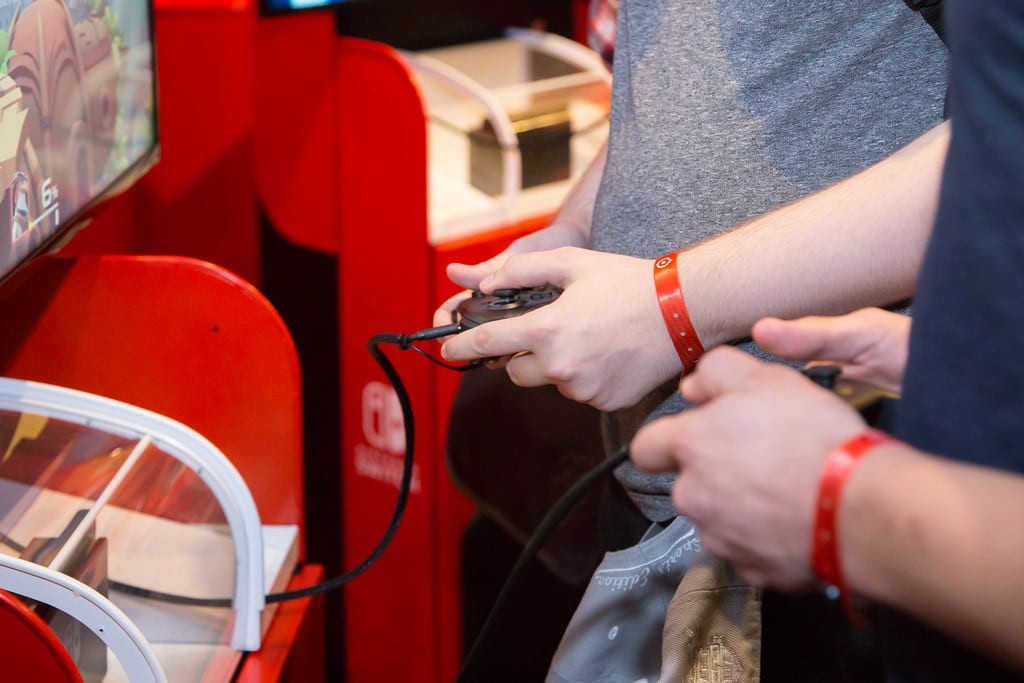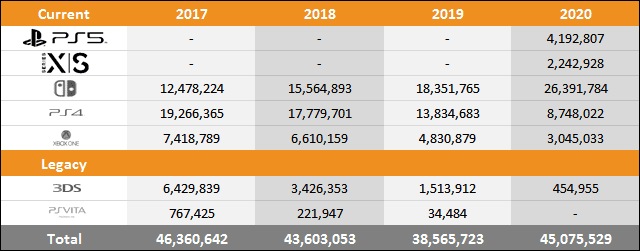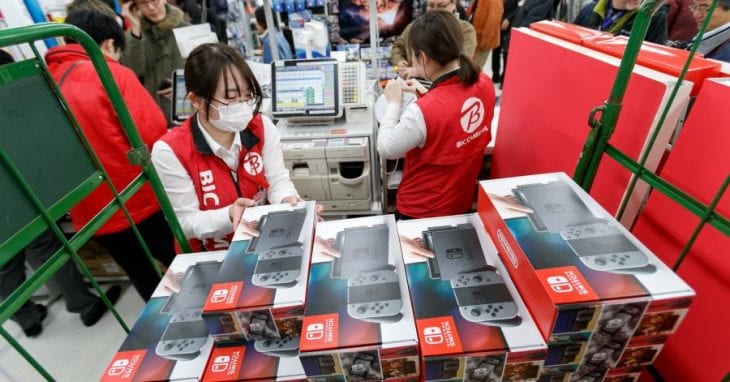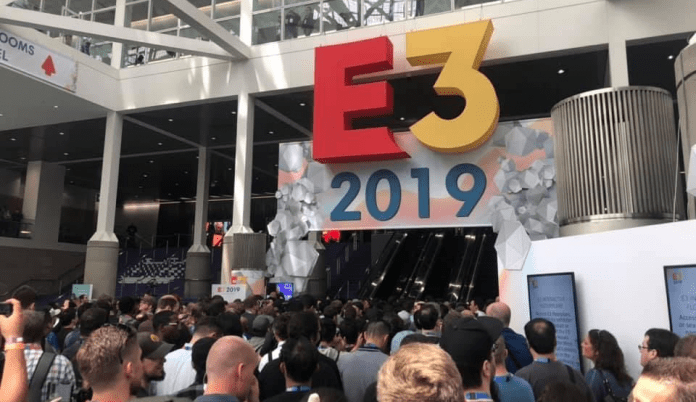The pandemic looks to have shaken things up in the video game industry forever, including the major events we’ve come to expect.
2020 started with high expectations for the video game industry with the highly anticipated launch of the next generation Xbox and PlayStation consoles, a variety of long-awaited game releases and a lot of great events to look forward to, but it didn’t take long to see the writing on the wall.
The Beginning
Early reports of the novel Coronavirus began circulating as early as January, but many (including myself) felt as if we would see a redux of the response to the 2009 H1N1/Swine Flu pandemic. It began with similar recommendations on prevention including “using tissues to cover their mouth and nose when coughing and sneezing, developing good handwashing technique, using alcohol-based hand cleaners, avoiding contact with ill persons if possible, and staying home when ill unless medical attention must be sought.”
There were some indications that this outbreak was more serious than previously anticipated with rumblings that large scale events, like the Game Developers Conference, faced being postponed in late February and organizations like the Entertainment Software Association began making statements assuring the public that the annually held E3 was on track to still take place over the summer.
“Everyone is watching the situation very closely. We will continue to be vigilant, as our first priority is the health, wellness, and safety of all of our exhibitors and attendees,” the ESA said in a Feb. 28 statement to Game Informer. “Given what we know at this time, we are moving ahead full speed with E3 2020 planning. Exhibit and registration sales are on track for an exciting show in June.”
By March 10th, GDC 2020 announced that the event would move to a full virtual format and on March 11th, E3 2020 was officially cancelled and the ESA followed the announcement with news that a virtual format would be explored.
The E3 team is devastated to share this news. This decision was not reached lightly, but it is the right one for the health and safety of all involved. Read our statement here: https://t.co/1uOWxTerN9 pic.twitter.com/gD2IxNACLX
— E3 (@E3) March 11, 2020
As many of us expected, this led to a domino effect across the industry. Many still held out hope, however, that events later in the year, like Quakecon and The Game Awards, would somehow be spared and we would see some sense of normalcy. Alas.
Adapt or Perish
As we saw established organizations flounder in the face of COVID-19, others jumped on the opportunity to fill the void left by the cancellation of so many large industry events.
Between IGN’s Summer of Gaming, Knightley’s Summer Game Fest, Valve’s Steam Game Festival and a variety of other developer/publisher virtual showcases, the vacuum left behind by E3’s cancellation was filled with ease.
For many video game fans, this was enough. Despite the rising popularity of the news surrounding the week-long tradeshow year after year, the reality is that most of the people who consume the news never got a chance to physically step foot into the frenzy that is E3. The annual video game expo was only open to media and industry members since its inception in 1995 and remained that way until 2018. That’s when general admission was open to the public for the first time.

Over the years, the majority of the hype has been the result of the live-streamed digital showcases produced by publishers like Sony, Microsoft, EA, and Ubisoft in addition to the media coverage in the form of news articles and videos.
The shift from a media trade show to a convention open to the general public in 2017 was an early sign of the declining quality of the show overall. The move was seen as a money grab by many, with general admission tickets over the last two years running between $149 up to $995.
Nintendo declined to do a traditional E3 press conference starting in 2013 and opted instead to produce high quality digital presentations involving high profile partnerships like with Jim Henson puppets and the creators of Robot Chicken.
Sony first departed from the traditional barrage of trailers at E3 in 2018, pulled out of the show entirely in 2019 and had announced plans to do the same in 2020 at the beginning of January, even before the news of COVID-19 changed the rest of the year.
The biggest losers in the cancellation of the physical event were companies who provide business-to-business services that rely on trade shows and industry members who network amongst each other for job opportunities. There was also a serious concerns over the quality of media coverage of news and game demos if everything were to move to a full digital format.
What The Sales Say
As the year has trudged on with no end in sight for COVID-19, publishers and developers announced a large number of delays, some with new dates and some indefinite, in addition to announcing concerns about physical production of games, peripherals and even rumors regarding the big ticket next-generation consoles being limited.
Update: SIE has made the difficult decision to delay the launch of The Last of Us Part II and Marvel's Iron Man VR until further notice. Logistically, the global crisis is preventing us from providing the launch experience our players deserve.
— PlayStation (@PlayStation) April 2, 2020
Despite issues cited by developers and publishers, consumers took the pandemic as an opportunity to catch up on the infamous gaming backlog. At least that’s what sales suggest. According to Venture Beat, video game hardware sales saw an astonishing 34% sales growth in 2020 followed by total video game sales increasing by 22%.
A look a hardware sales for the year is mind boggling. The Nintendo Switch became the highest selling console in 2020 by a mile.
According to VGChartz, the Nintendo Switch sold 26,391,784 consoles in 2020 alone followed by the PlayStation 4 at 8,748,022 and PlayStation 5 at 4,192,807. The Xbox One sold 3,045,033 units and the Series X|S combined sales at 2,242,928. The discontinued Nintendo 3DS sold a little over 450,000 units. The reporting period was from January 4 to December 19.

The same data shows that the Nintendo Switch has seen a year-over-year increase in console sales since it launched in 2017 — nearly 25% the first year following launch, dropping slightly to about an 18% increase the second year and then jumping to a staggering 44% increase in 2020.
The sales trajectory of the Switch swung in the opposite direction of the PlayStation 4 and Xbox One consoles, but that had more to do with both systems reaching the veritable end of their life cycles. Limited production of both the PlayStation 5 and Xbox One X|S consoles stunted hardware sales overall, but both Microsoft and Sony made statements that COVID-19 did not affect production.
“Overall, I think we’re in line with where we thought we would be,” Phil Spencer, head of Xbox, said to CNBC in April. “I’d say the bigger unknown is probably the game production … Game production is a large scale entertainment activity now, you have hundreds of people coming together, building assets, working through creative.”
Bloomberg reported that Sony would be limiting production to five or six million units, but because of production costs and not COVID-19. We can see that console sales by December 19 barely broke four million.

Despite the rumors and delays, the numbers speak for themselves. For a large portion of 2020 it was nearly impossible to find the Nintendo Switch consoles in any store — brick-and-mortar and digital. The same can be said for the new generation Xbox and PlayStation systems, which are still selling out in minutes at all participating retailers even three months following launch.
View Cinelinx’s best games of 2020 here
The year also saw the release of some highly anticipated games like The Last of Us: Part II, Final Fantasy VII Remake, Ghosts of Tsushima, Animal Crossing: New Horizons, Doom: Eternal, Cyberpunk 2077 and more. Nintendo Life reported in August that Animal Crossing, became the second best selling game of all time in Japan, best only by Pokémon Red and Blue. Worldwide, the game sold 26 million copies and came in second in gross sales only to Call of Duty: Modern Warfare.
In 2020, I know many others found themselves in the same position as myself — temporarily unemployed and with a huge gaming backlog that’s been piling over the years between Steam Summer/Winter sales, Xbox Game Pass and PlayStation Plus freebies. I can imagine that if I had the time to put in over 800 hours on Animal Crossing alone, others clocked serious time with their consoles and PC as well.
Heading into 2021
Across other forms of entertainment, we’re seeing a shift to plan ahead instead of adapting last minute. In film, big news came early in December when Warner Bros. announced a hybrid simultaneous release model with HBO Max for the entirety of their 2021 movie slate.
The video game industry, in some capacity, is holding out and planning physical events but acknowledging the events may end up taking place digitally again.
View Cinelinx’s most anticipated games of 2021 here
We have the dates for some major events in 2021, like SXSW 2021 which planned a digital only conference that will take place from March 16-20.
E3 is already slated to be held June 15-17. The announcement of this year’s dates came from the ESA in April 2020 alongside news that it will be a “reimagined event,” but no updates on the events have been provided since.
On December 4th, Penny Arcade announced plans to hold in-person festivals barring safety concerns:
“Let’s just say the quiet part out loud: if COVID-19 remains a major barrier to safety gathering at one of our shows, we won’t do it or we will take it virtual,” Penny Arcade said in the statement. “As much as we miss, even crave, the togetherness and magic of PAX, we will not put attendees, exhibitors, or our guests at risk for the sake of an event if things aren’t on the up and up.”
With optimism and safety in mind, we're announcing our #PAX 2021 Dates. Read the full statement below: pic.twitter.com/dDMhsJwd7t
— PAX (@pax) December 4, 2020
Tokyo Game Show made a similar announcement in October about the 2021 event, planned for Sept. 30 to Oct. 3. Organizers are planning a physical event to be held at Makuhari Messe, one of Japan’s largest convention centers.
Will we see gaming news return to the predictable cycle of planned trailer dumps at events like E3 and Gamescom sandwiched in between planned leaks and surprise retail listings? I hope not. I would hate to see largescale events fall to the wayside, but have enjoyed the creativity of studios and publishers in adapting to catering to a total digital audience — which was always the majority of consumers in the first place.
As we forge ahead into the New Year, get a better understanding of the efficacy of the Coronavirus vaccine and whether we will see a continued struggle against mutated strains of the virus, I have hopes that the video game industry will continue to adapt in an effort to provide the world with a product that provides joy, calm and comfort to millions.















